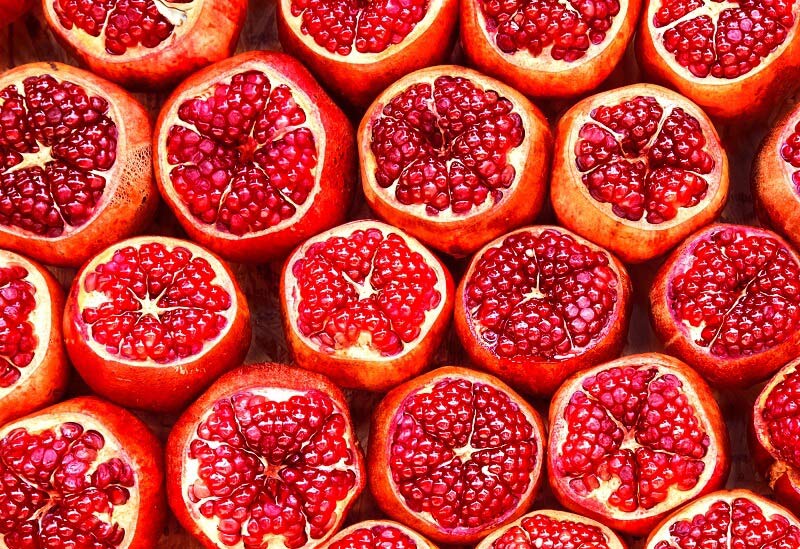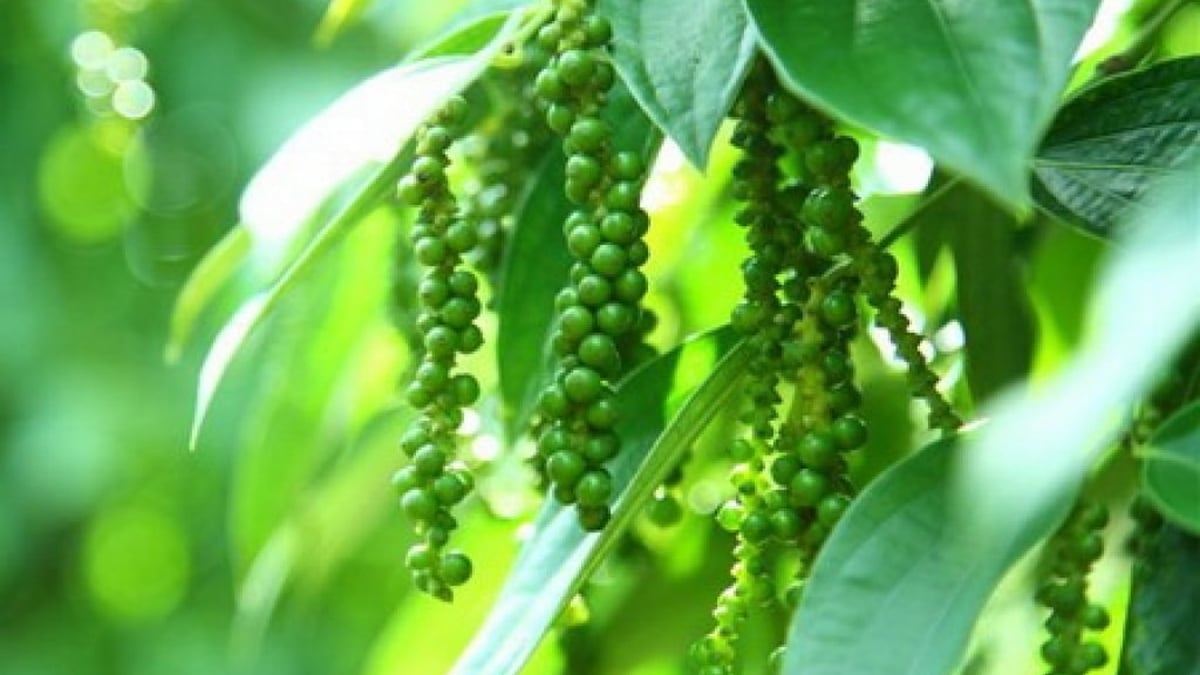Benefits of pomegranate
Pomegranate has laxative and astringent properties, bringing many benefits such as quenching thirst, producing body fluids, tightening the intestines, stopping diarrhea, stopping dysentery and strengthening the kidneys.
In Oriental medicine, pomegranate is called "thạch pomegranate". It has a sweet taste and goes into the stomach meridian. It has the effect of nourishing the stomach yin, clearing stomach heat, and promoting blood circulation. In addition, pomegranate goes into the kidneys and has the effect of nourishing kidney essence, strengthening the back and knees, improving brain function, enhancing memory and thinking ability.
According to modern medical research, pomegranates contain many important nutrients such as fiber, potassium, vitamin C, and vitamin K. In particular, pomegranates are rich in antioxidants thanks to punicalagin and punicic acid, which help protect the body and support strong health.
This is a low-calorie, low-fat fruit but provides many nutrients that are good for health. In particular, pomegranates contain many trace elements such as zinc and magnesium. When zinc is lacking, the body's systems are affected, causing symptoms such as depression, anxiety, especially affecting teenagers.
Eating pomegranates helps supplement zinc, not only promoting physical growth but also supporting intellectual development, helping to form a positive personality. This is also a good way to support the treatment of male physiological diseases.
Magnesium deficiency can cause depression, fear, nervousness, dizziness or twitching of the limbs. Eating pomegranates rich in magnesium can balance electrolytes, stabilize cell membranes of the central nervous system and have a sedative effect.

Pomegranate has thirst quenching and medicinal properties.
Here are some uses of pomegranate.
Heat-clearing: Pomegranate can treat symptoms caused by heat such as dry throat, dry nose, red eyes and fatigue.
Astringent and intestinal tightening: The sweetness of pomegranate contains compounds such as alkaloids and ursolic acid, which have astringent and intestinal tightening effects, helping to stop diarrhea, stop bleeding, and prevent diseases such as dysentery, urinary incontinence, and rectal prolapse.
Beautify skin: Pomegranate contains a lot of vitamin C, promotes blood circulation, helps skin become rosy and smooth.
Stops Diarrhea: The astringent properties of pomegranate help cure diarrhea and other problems like urinary incontinence.
Thirst quencher: When you feel thirsty and cannot be quenched by water, eating a pomegranate can help quench your thirst instantly.
Good for the cardiovascular system: Pomegranate contains punicalagin, which is an ingredient that helps form the anticoagulant effect of pomegranate. In addition, pomegranate also has the effect of reducing cholesterol levels in the blood.
From the above effects, pomegranate is a fruit that helps reduce the risk of blood clots and atherosclerotic plaques on the vascular wall, thereby being very beneficial for cardiovascular health.
Notes when eating pomegranate
Do not eat pomegranates with certain vegetables.
Do not eat pomegranate with watermelon, watermelon is cold, pomegranate is warm, eating them together can easily cause diarrhea and digestive disorders. Besides, do not eat pomegranate with tomatoes because tomatoes when eaten with pomegranate can reduce nutrient absorption and harm the stomach.
Pomegranate should not be eaten with potatoes. Combining pomegranate with potatoes can cause poisoning and is not good for your health.
Pomegranate should not be eaten with foods rich in calcium.
Pomegranate contains tannin, when combined with calcium in milk, crab, shrimp, some types of fish... will form a compound that is difficult to digest, causing stomach ache and nausea.

Calcium-rich foods should not be eaten with pomegranates.
People with fever should not eat pomegranate.
Pomegranate has astringent properties and should not be used by people with colds or fevers because it can make the illness worse.
People with tooth decay should not eat a lot of pomegranates.
Pomegranates are high in sugar and acid, which can increase toothache and harm oral health.
People with chronic gastritis should be careful when eating pomegranates.
The acid in pomegranates stimulates the stomach to secrete more acid, irritating the lining and worsening the condition.
People with diabetes should only eat pomegranates in moderation.
Pomegranate contains a lot of sugar, which rapidly increases blood sugar levels and is not suitable for people with diabetes.
People with hemophilia and people about to have surgery should be careful when eating pomegranates.
Pomegranate helps blood circulation, preventing blood vessel blockage. However, this effect will not be good for people who are bleeding, people about to have surgery or people with hemophilia.
Dr. Nguyen Huy Hoang
Source: https://giadinh.suckhoedoisong.vn/7-luu-y-khong-duoc-bo-qua-khi-an-qua-luu-172240917230840828.htm


































































































Comment (0)